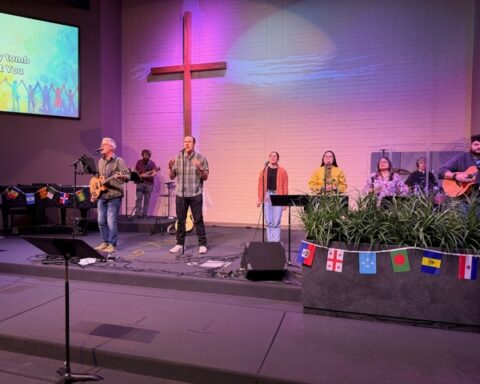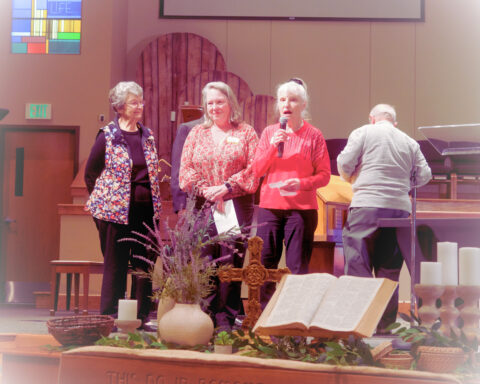Simone Biles and the Power of Reimagination
As the world eagerly awaits the upcoming Summer Olympics, one athlete’s story has captivated our attention more than any other – Simone Biles. The undisputed “GOAT” of women’s gymnastics, Biles’ journey has been nothing short of extraordinary. From bursting onto the scene at the 2016 Rio Olympics, where she won a staggering five medals, four of them gold, to the mental health challenges she faced at the 2020 Tokyo Games, Biles’ story is a testament to the power of reimagination.
In the documentary “Simone Biles: Rising,” Biles reflects on the aftermath of her success in Rio, admitting that she was left wondering, “What in the world do I do now?” Her lifelong dream had been achieved, and she found herself in need of a reimagining – a recalibration of her life, her relationships, her emotions, and her mental health, as well as her gymnastics. The journey was not an easy one, but Biles’ resilience and strength have cemented her status as a true legend, both in the sport and in the broader cultural landscape.
Biles’ story resonates deeply because it speaks to the universal human experience of needing to reimagine our lives, our priorities, and our relationship with the world around us. Whether it’s a major life event or a gradual shift in perspective, the ability to reimagine is a powerful tool that can help us navigate the complexities of our existence.
Reimagining Resources in the Book of Leviticus
The Book of Leviticus, often overlooked for its seemingly dry and legalistic content, offers a fascinating glimpse into the divine call to reimagine our relationship with resources. As the Israelites emerged from captivity in Egypt, God sought to guide them in establishing a new community, one that would challenge the prevailing systems and mindsets they had known.
One of the practices God introduced was the concept of “gleaning.” Instead of harvesting every last grain from their fields, the Israelites were instructed to leave the edges unharvested, allowing those in need to come and gather what was left behind. This was a radical departure from the scarcity-driven mentality of Egypt, where resources were hoarded by the powerful and denied to the marginalized.
God’s vision for the Israelites went even further with the institution of the Year of Jubilee. Every 50 years, all land was to be returned to its original owners, and debts were to be forgiven. This practice challenged the idea of permanent ownership and individual accumulation of wealth, instead promoting a communal understanding of resources as a means to care for one another.
These practices were not merely about the distribution of material goods; they were a call to reimagine the very foundations of their society. God wanted the Israelites to find their security and comfort in Him, rather than in the accumulation of possessions or the pursuit of individual wealth. The resources they had were to be seen as a means to help others, not as a source of personal gain or status.
The Widow’s Offering and the Broken System
Tragically, the Israelites’ reimagination of resources did not take root, as evidenced by the scene described in Mark 12:38-44. Jesus, observing the wealthy making a show of their offerings at the temple treasury, draws attention to a poor widow who contributes a mere two small copper coins. In doing so, Jesus highlights the stark contrast between the system that had been created and the vision God had originally intended.
The teachers of the law, in their pursuit of personal gain, had constructed a system that exploited the vulnerable, like the poor widow. Rather than finding their security in God and using their resources to care for others, they had become consumed by the accumulation of wealth and the maintenance of their own power and status.
Jesus’ response to this scene is twofold. On one hand, he lifts up the widow’s offering as an example of true generosity and faith, as she gives all that she has. But on the other hand, he also condemns the system that has created this scenario, where the poor are forced to sacrifice their meager resources to prop up the wealth and influence of the elite.
The tragedy is that this dynamic is still all too prevalent in our world today. Broken systems that prioritize individual gain over communal well-being continue to perpetuate cycles of poverty, inequality, and exploitation. It is a stark reminder of the urgent need to reimagine our relationship with resources and the structures that govern their distribution.
Reimagining Our Money Story
As followers of Christ, we are called to be agents of change, to challenge the status quo, and to reimagine a better way forward. This begins with examining our own personal “money story” – the beliefs, habits, and assumptions that shape our relationship with resources.
Too often, we fall into the trap of viewing our resources as a means of personal security and comfort, rather than as a tool for serving others. We hoard, we accumulate, and we become consumed by the pursuit of wealth, just as the teachers of the law had done. But God’s vision for us is radically different.
- Our security and comfort should be found in God, not in the accumulation of possessions or wealth.
- Our resources are not ours to keep, but rather a means to help those in need and to build a more just and equitable society.
- We are called to challenge the broken systems that perpetuate inequality and exploitation, and to work towards a reimagined future where all people have access to the resources they need to thrive.
This is not an easy task, and it requires a fundamental shift in our mindset and our priorities. But it is a necessary step if we are to truly live out the vision of God’s Kingdom, where the last are first, and where the poor and marginalized are lifted up and cared for.
Putting Reimagination into Practice
So, how can we begin to put this reimagination into practice in our own lives? It starts with small, intentional steps that challenge our existing assumptions and open us up to new possibilities.
Perhaps it means reevaluating our personal spending habits and finding ways to redirect resources towards causes and organizations that are working to address systemic injustice. Or it could involve volunteering our time and skills to support those in need within our local communities.
It might also mean engaging in advocacy work, using our voices and our influence to call out the broken systems that perpetuate inequality and to push for meaningful change. This could involve anything from contacting our elected representatives to participating in grassroots organizing efforts.
Ultimately, the key is to approach our relationship with resources with a spirit of imagination, creativity, and a willingness to challenge the status quo. By reimagining what is possible, we can begin to lay the groundwork for a more just, equitable, and compassionate world – one that reflects the vision of God’s kingdom.
Conclusion: Embracing the Reimagination
Simone Biles’ journey of reimagination serves as a powerful reminder that the ability to see the world anew is a gift, not a burden. It is a call to let go of the familiar, to embrace the unknown, and to trust that in doing so, we can unlock new possibilities and create a better future for ourselves and for those around us.
As we reflect on the lessons of Leviticus and the widow’s offering, let us be inspired to reimagine our relationship with resources, to find our security in God, and to use what we have been entrusted with to serve others and to build a more just world. It is a challenging path, but one that is ultimately filled with the promise of transformation and the hope of a better tomorrow.










